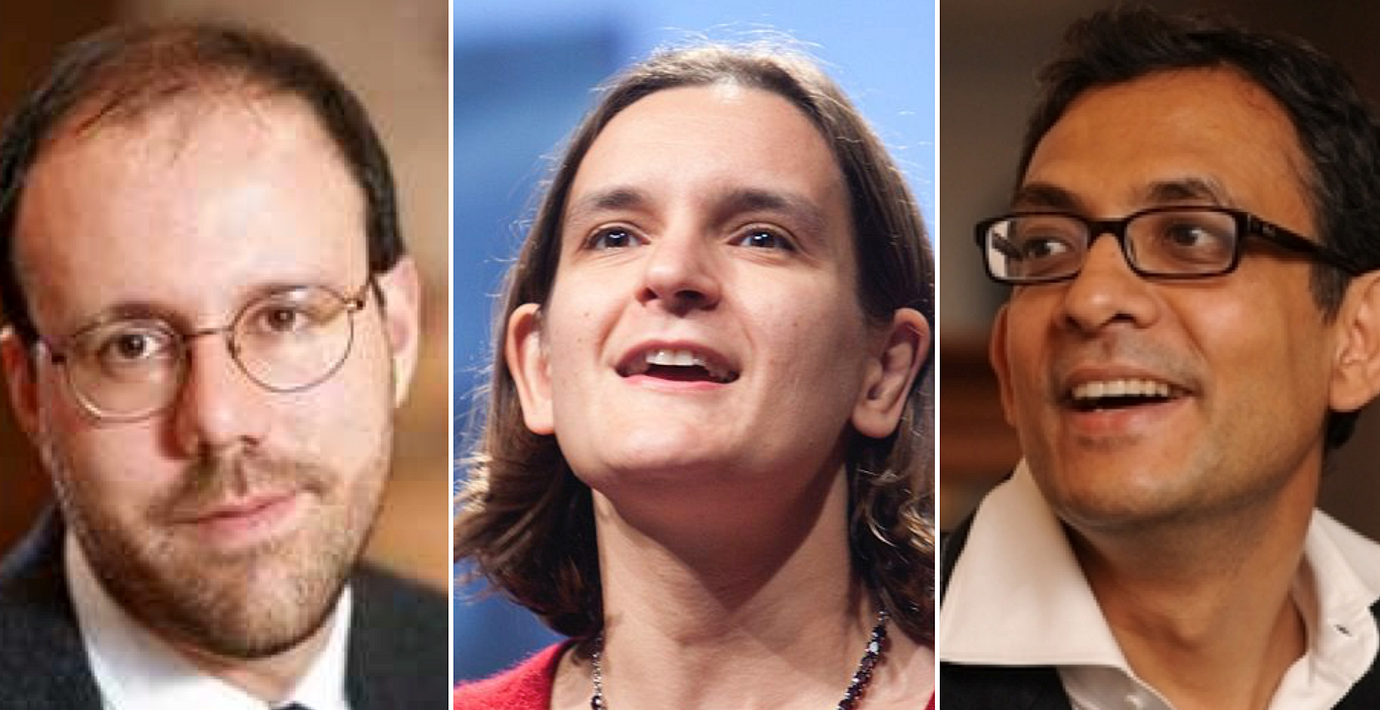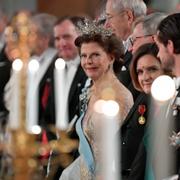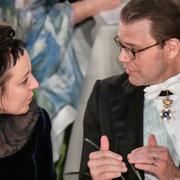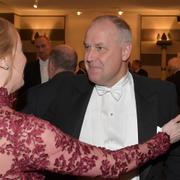
Ekonomipriset till Nobels minne tilldelas trio
Den franska fattigdomsforskaren Esther Duflo delar Riksbankens ekonomipris till Alfred Nobels minne med amerikanerna Abhijit Banerjee och Michael Kremer.
”Årets pristagare har introducerat ett nytt angreppssätt för att få tillförlitliga svar på hur man kan bekämpa global fattigdom”, skriver Kungliga Vetenskapsakademien i ett pressmeddelande.
I mitten av 90-talet gjorde Kremer fältexperiment och testade åtgärder för att förbättra skolresultaten i västra Kenya, något som Banerjee och Duflo fortsatt med i andra länder, ofta tillsammans med Kremer.
”Deras metoder är i dag dominerande bland utvecklingsekonomer”, skriver Kungliga Vetenskapsakademien.
bakgrund
Esther Duflo
Wikipedia (en)
Esther Duflo, FBA (French: [dyflo]; born 25 October 1972) is a French American economist, Co-Founder and Director of the Abdul Latif Jameel Poverty Action Lab (J-PAL), and Professor of Poverty Alleviation and Development Economics at the Massachusetts Institute of Technology. Duflo is an NBER Research Associate, serves on the board of the Bureau for Research and Economic Analysis of Development (BREAD), and is Director of the Center for Economic and Policy Research's development economics program.Her research focuses on microeconomic issues in developing countries, including household behavior, education, access to finance, health, and policy evaluation. Together with Abhijit Banerjee, Dean Karlan, Michael Kremer, John A. List, and Sendhil Mullainathan, she has been a driving force in advancing field experiments as an important methodology to discover causal relationships in economics.
bakgrund
Abhijit Banerjee
Wikipedia (en)
Abhijit Vinayak Banerjee (Bengali: অভিজিৎ বিনায়ক বন্দ্যোপাধ্যায়; born 1961) is an American economist. He is currently the Ford Foundation International Professor of Economics at MIT. Banerjee is a co-founder of the Abdul Latif Jameel Poverty Action Lab (along with economists Esther Duflo and Sendhil Mullainathan), a research affiliate of Innovations for Poverty Action, and a member of the Consortium on Financial Systems and Poverty. Banerjee was a president of the Bureau for the Research in the Economic Analysis of Development, a research associate of the National Bureau of Economic Research, a research fellow at the Centre for Economic Policy Research, an international research fellow of the Kiel Institute, fellow at the American Academy of Arts and Sciences, and a fellow at the Econometric Society. He also has been a Guggenheim Fellow and an Alfred P. Sloan Fellow. He is the co-author of Poor Economics. Banerjee won the Nobel Memorial Prize in Economic Sciences in 2019.
bakgrund
Michael Kremer
Wikipedia (en)
Michael Robert Kremer (born November 12, 1964) is an American development economist, who is currently the Gates Professor of Developing Societies at Harvard University. Kremer has excelled in his field and has received many awards for his success. He is a Fellow of the American Academy of Arts and Sciences, a recipient of a MacArthur Fellowship (1997) and a Presidential Faculty Fellowship, and was named a Young Global Leader by the World Economic Forum. He has also focused his research on charitable causes in effort to help suffering people throughout the world. Kremer is a Research Affiliate at Innovations for Poverty Action, a New Haven, Connecticut-based research outfit dedicated to creating and evaluating solutions to social and international development problems. In addition to his work at Innovations for Poverty Action, Kremer is a member of Giving What We Can, an international society for the promotion of poverty relief. Kremer is founder and president of WorldTeach, a Harvard-based organization which places college students and recent graduates as volunteer teachers on summer and year-long programs in developing countries around the world.
Kremer also started the advanced market commitment, which focuses on creating incentive mechanisms to encourage the development of vaccines for use in developing countries, and the use of randomized trials to evaluate interventions in the social sciences. He created the well-known economic theory regarding skill complementarities called Kremer's O-Ring Theory of Economic Development.
Kremer proposed one of the most convincing explanations for the phenomenon of the World System population hyperbolic growth observed prior to the early 1970s, as well as the economic mechanisms of the demographic transition. Kremer has also presented his research in the field of human capital at the International Growth Centre's Growth Week 2010.
bakgrund
Sveriges Riksbanks pris i ekonomisk vetenskap till Alfred Nobels minne
Wikipedia (sv)
Sveriges Riksbanks pris i ekonomisk vetenskap till Alfred Nobels minne, i dagligt tal ofta kallat Ekonomipriset eller (informellt/missvisande) "Nobelpriset i ekonomi", är ett pris som instiftades av Sveriges Riksbank 1968 i samband med bankens 300-årsjubileum.
Priset delades ut för första gången 1969, prissumman är den samma som för nobelprisen och utdelningen sker tillsammans med de fyra nobelpris som delas ut i Stockholm den 10 december årligen. Pristagare utses i början av oktober varje år av den svenska Kungliga Vetenskapsakademien, som även utser pristagare för Nobelpriset i fysik och Nobelpriset i kemi. Nomineringsproceduren och arbetet med att utse pristagare går till på samma sätt som för fysik- och kemiprisen, och sköts av Kommittén för Sveriges Riksbanks pris i ekonomisk vetenskap till Alfred Nobels minne. Mottagarna av priset är dock inte nobelpristagare i egentlig mening.
Omni är politiskt obundna och oberoende. Vi strävar efter att ge fler perspektiv på nyheterna. Har du frågor eller synpunkter kring vår rapportering? Kontakta redaktionen



